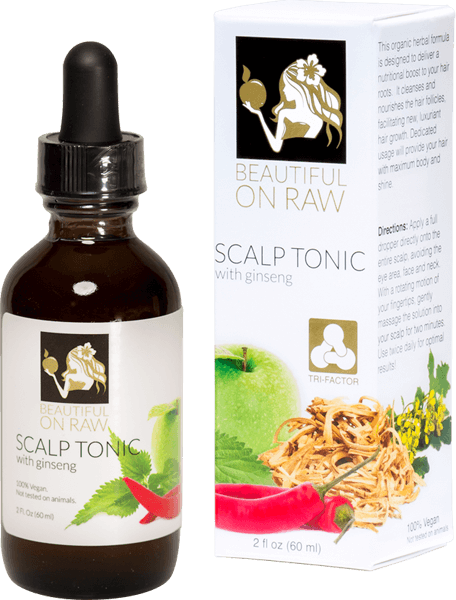Polysorbate 80

Polysorbate 80
My scalp tonic contains Polysorbate 80, and, occasionally, customers ask: Is it safe?
Understandable question. After all, the name polysorbate 80 sounds so, well … chemical. Early on, I felt intimidated by chemical names myself. For instance, the first time I saw pyrodoxine hydrochloride I was sure I’d never go near it until I learned it was just a fancy name for B vitamins. A name with a ‘chemical’ sound shouldn’t be intimidating by itself—everything, after all, has a chemical name.
Polysorbates are oily liquids derived from a combination of sorbitol and certain fatty acids. Sorbitol is a natural sugar found in fruits and berries. Foods such as olives and avocados contain the monounsaturated fatty acids that combine with sorbitol to form various polysorbates. Polysorbate 80 happens to be highly effective at promoting hair growth, as distinct from polysorbate 60 or 20.
Polysorbate 80 is used as a cleanser, an emulsifier and a surfectant in products ranging from pharmaceuticals to vitamins, cosmetics to foods. Emulsifiers simply keep oils from separating from liquids, while surfectants reduce the surface tension of liquids, helping them achieve smooth, even coverage. Mayonnaise, for example, contains Polysorbate 80. Incidentally, mayonnaise has long been a very popular hair treatment and conditioner, and my scalp tonic has far less Polysorbate 80 than even mayonnaise does!
First discovered by a Finnish doctor and cancer specialist, polysorbate 80 became popular courtesy of a book, Durk Pearson and Sandy Shaw’s Life Extension: A Practical Scientific Approach. Pearson and Shaw cited studies showing that polysorbate 80, when used daily, resulted in 60% hair re-growth in only six months. One theory: The polysorbate helped remove the buildup of DHT, a hormone related to male pattern baldness, from hair follicles. Polysorbate 80 has also been approved by the FDA as a demulcent (for soothing mucous membranes) in ophthalmic products.
In some cases, use of polysorbate 80 has been discouraged due to side effects. These were generally situations involving either internal consumption of large doses, or rare allergic reactions and sensitivities.
Since I promote eating raw food as much as possible, ingesting any dessert with food additives is out of the question. But the minute concentrations found in products used externally—like my tonic—will pose no problem at all for the vast majority of people, especially when obtained from reputable sources. The University of California at Berkeley’s Carcinogenic Potency Project found zero potential for either carcinogenic or tumor inducing properties from polysorbates, even at high doses.
I’ve searched long and hard for the safest, most effective ingredients for my skin and hair formulas. What’s more, I created all my products for my personal use first. I stand behind all of the ingredients I have chosen and use them with the utmost confidence and satisfaction. You can, too!

